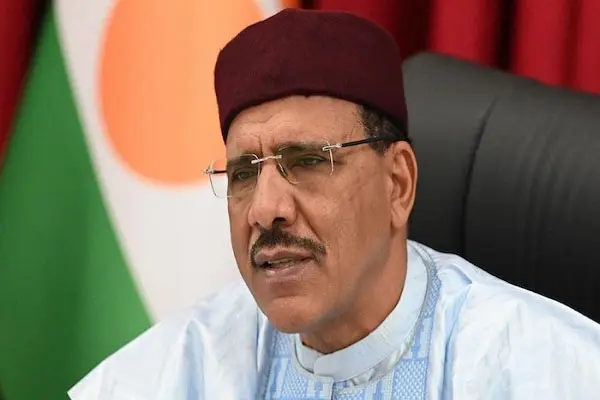Niger’s President Mohamed Bazoum, in the wake of a military coup that toppled him from power, resorted to social media on Thursday to assert his determination to safeguard the hard-fought democratic achievements.
Following suit, the country’s foreign minister, Hassoumi Massoudou, utilized the platform formerly known as Twitter to rally “all democrats and patriots” in an effort to thwart the coup.
The coup was announced on national television late Wednesday night by soldiers, who declared Bazoum’s removal from power and the suspension of all republican institutions.
This marks the seventh coup in West and Central Africa since 2020.
Earlier on Wednesday, members of the presidential guard barricaded the presidential palace in Niamey, the capital, effectively confining Bazoum.
This development sparked both regional and international apprehensions about the potential for instability in a country crucial to Western powers’ efforts to combat insurgency in the Sahel region.
As of Thursday morning, Bazoum remained confined inside the presidential palace, as reported by Foreign Minister Massoudou in an interview with France 24.
However, the minister’s own whereabouts were uncertain.
The military imposition of closed borders and a nationwide curfew greeted the citizens of Niamey on Thursday morning, contributing to the hushed atmosphere in the city.
On Wednesday, during unfolding events, some of Bazoum’s supporters gathered in the city, expressing their opposition to the change of power, but they were later dispersed.
The situation remains uncertain as the identity of the new leadership remains unclear.
While General Omar Tchiani heads the presidential guard, it was Colonel Amadou Abdramane of the air force who delivered the televised statement.
Claiming that the action was taken in response to deteriorating security and bad governance, Abdramane, along with nine other officers in fatigues, sat in an office rather than the traditional television studio setting.
Niger, a landlocked nation and a former French colony, has been grappling with jihadist militants involved in a violent insurgency across the West African region for the past decade.
The lack of effective state measures to prevent violent attacks on towns and villages partly fueled coups in Mali and Burkina Faso since 2020.
Given the strained relations between Western powers and the military governments of Burkina Faso and Mali, Niger’s role has grown increasingly critical in the fight against jihadists, leading to foreign troop withdrawals from the latter two countries.


